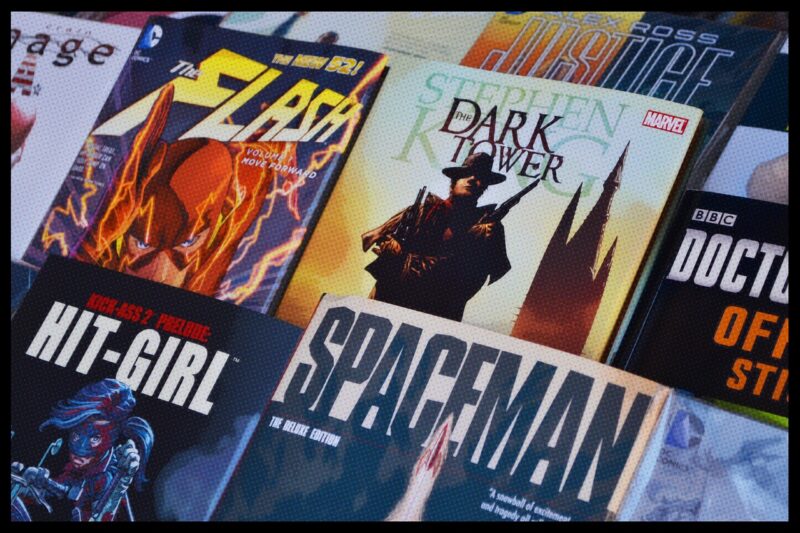
Superheroes have long been a staple of popular culture, thrilling audiences with their fantastical powers and heroic deeds. However, beyond the cape and costume, many superhero stories have tackled pressing real-world issues, bringing awareness to social injustices, political climates, and environmental concerns. In this article, we will explore ten notable instances where superheroes have confronted significant real-world problems, shedding light on the power of fiction to inspire change in society.
1. Captain America and the Fight Against Fascism
Created during World War II, Captain America is perhaps one of the most iconic symbols of American patriotism and anti-fascism. His debut comic featured him punching Adolf Hitler on the cover, making a bold statement about the United States’ stance in the war. Captain America not only fought against Axis powers in his own stories, but also inspired young readers to be vigilant against intolerance and injustice.
In the present day, the character continues to represent the struggle against oppression, reminding audiences that heroism is about standing up for what is right, regardless of the odds.
2. Green Lantern and Racial Equality
In the 1970s, comic book writer Denny O’Neil and artist Neal Adams introduced John Stewart, a Black Green Lantern, in an effort to address issues of racial inequality. His storylines often tackled systemic racism and social injustice. In one memorable story arc, Green Lantern (Hal Jordan) is convinced by Stewart to confront his own prejudices and become a better ally for marginalized communities.
This narrative arc opened the door for discussions about race within comic books, showcasing how superheroes can inspire readers to reflect on their own societal roles.
3. X-Men and LGBTQ+ Rights
The X-Men series has long been an allegory for marginalized communities, particularly the LGBTQ+ rights movement. Many of the characters—including Mystique and Colossus—struggle with their identities and face discrimination for being different. The central theme is one of acceptance, as the team fights for coexistence despite society’s fear of them.
In one significant story, the character Northstar comes out as gay, marking a monumental moment in comic history. This highlighted the fight for LGBTQ+ rights and the importance of representation in media—encouraging readers to embrace diversity and equality.
4. Spider-Man and Urban Crime
Spider-Man, one of the most beloved characters in comic book history, often battles crime in New York City, making him a relatable figure for those facing urban issues. Created in the 1960s, Spider-Man’s stories frequently dealt with social issues such as poverty, crime, and responsibility.
One famous storyline involves his battles against the gang violence prevalent in urban neighborhoods, as he takes on villains that are representations of societal problems—highlighting the need for communities to come together to fight crime and support one another.
5. Ms. Marvel and Muslim Representation
Ms. Marvel (Kamala Khan) is one of the first Muslim superheroes in mainstream comics, offering a fresh perspective on identity and representation. Her storylines often address the complexities of being a teenager, exploring themes of culture, faith, and acceptance in a post-9/11 world. Through her character, many young readers have seen their own struggles reflected in the pages, breaking down barriers and challenging stereotypes.
By tackling issues around Islamophobia and the importance of diversity, Ms. Marvel provides a voice for those who may feel marginalized in society, pushing for greater understanding and acceptance.
6. Superman and Environmental Issues
Superman, with his incredible strength and ability to fly, has often been depicted as a guardian of Earth, often addressing pressing environmental issues. In a memorable storyline titled “What’s So Funny About Truth, Justice & the American Way?”, Superman battles a villain who uses excessive force and destruction, posing the question of what it means to be a true protector of the planet.
Another poignant series called “Superman: Earth One” emphasized climate change and pollution, illustrating how even superheroes have a responsibility toward environmental preservation.
7. Wonder Woman and Feminism
Wonder Woman has been a symbol of female empowerment since her creation in 1941. Her character embodies strength, compassion, and equality, fighting for women’s rights and social justice throughout her many story arcs. Facing numerous adversities, she represents the struggle against gender inequality and oppression.
In her storylines, Wonder Woman champions feminist ideologies and challenges traditional gender norms, encouraging women to be strong and independent—an inspiring message that resonates in today’s society.
8. The Punisher and PTSD Awareness
The Punisher (Frank Castle) is a darker superhero, often depicting the consequences of violence and war. His character is a veteran who suffers from PTSD (Post-Traumatic Stress Disorder) after witnessing the horrific deaths of his family.
His storylines confront the complexity of mental health and the effects of trauma, particularly in relation to veterans and their struggles to reintegrate into civilian life. This representation serves to highlight the importance of acknowledging mental health issues and advocating for support services for those affected.
9. Batman and Crime Prevention
Batman operates in Gotham City, often confronting high crime rates and corruption. His character reflects an individual who uses his resources to combat crime and address societal issues, making it clear that community and vigilance are essential to creating safer environments.
In various adaptations, Batman collaborates with law enforcement and community organizations to combat crime and empower the citizens of Gotham. Through his commitment to justice and hesitant partnership with public policy, Batman illustrates how everyone can contribute to making their communities safer.
10. Black Panther and Global Perspectives
Black Panther offers a unique perspective on Africa that challenges Western stereotypes. Through the portrayal of Wakanda—a technologically advanced and vibrantly rich society—Black Panther brings to the forefront themes of colonialism, self-determination, and global inequality.
His stories encourage discussions about Africa’s role in the world, advocating for respect and understanding of different cultures. This makes Black Panther a vital figure in addressing issues of race and social justice, and the importance of representation in media.
Conclusion
Superheroes have proven time and again that they can serve as powerful voices in tackling real-world issues. Through their stories, they not only entertain but also inspire readers to reflect upon their societal roles and drive change in communities. As we continue to embrace these characters, we should appreciate the lessons they impart about compassion, justice, and the importance of standing up for what is right in our world.
By highlighting these ten instances, we celebrate the ability of superhero narratives to advocate for meaningful change, reminding us that heroism knows no bounds.






